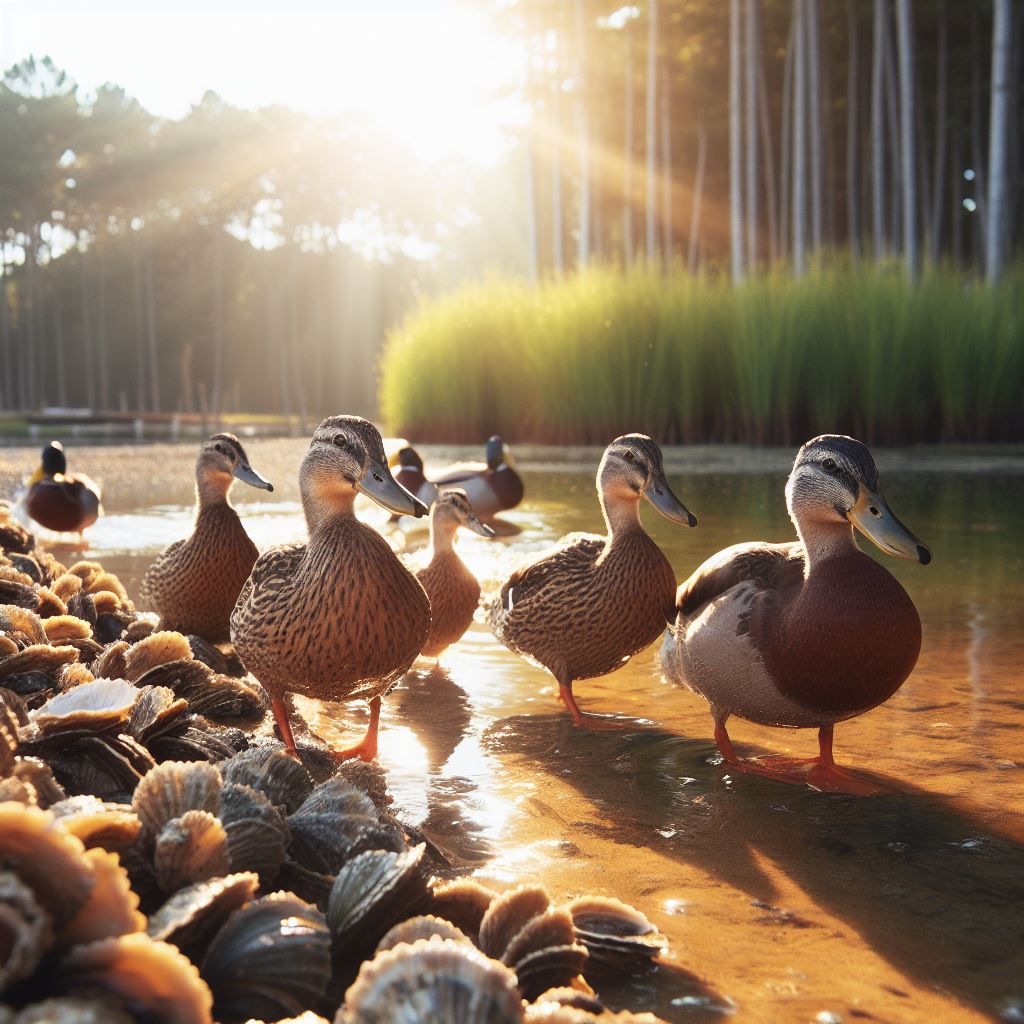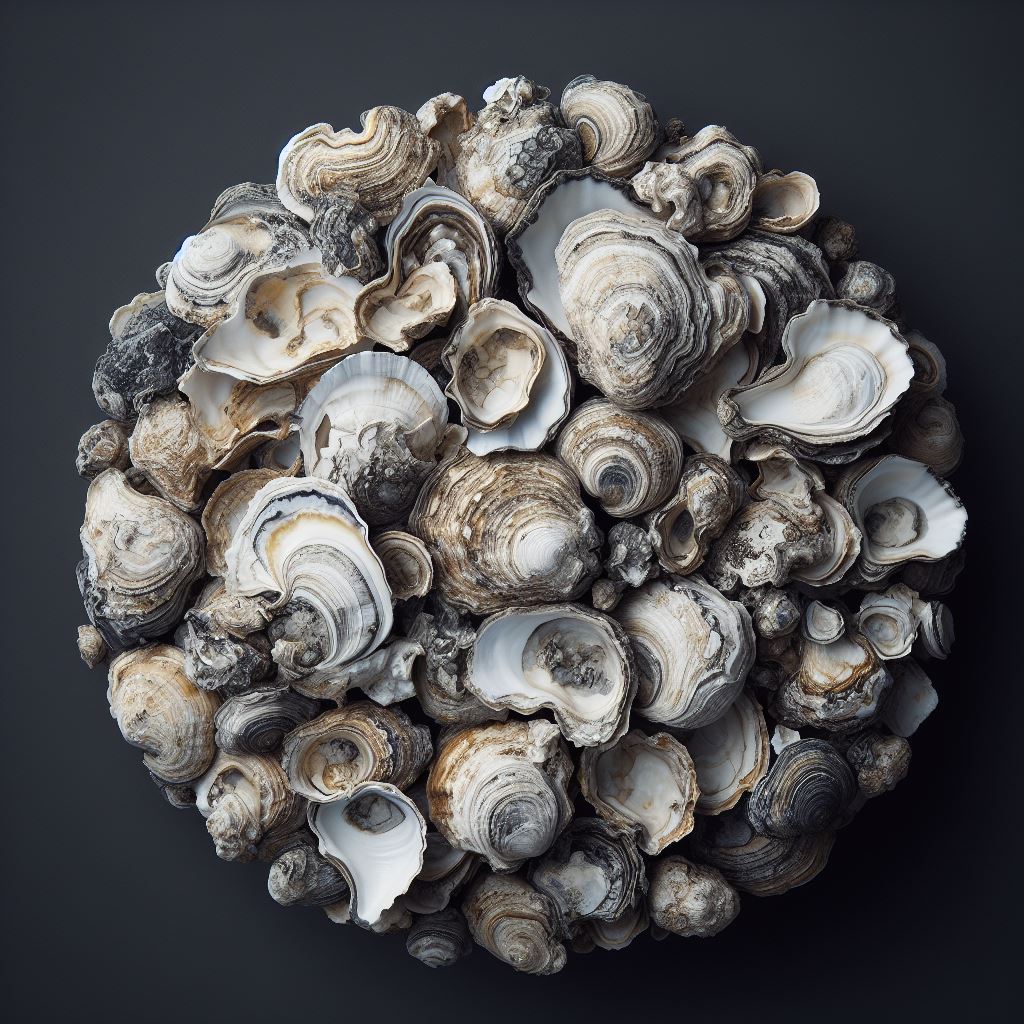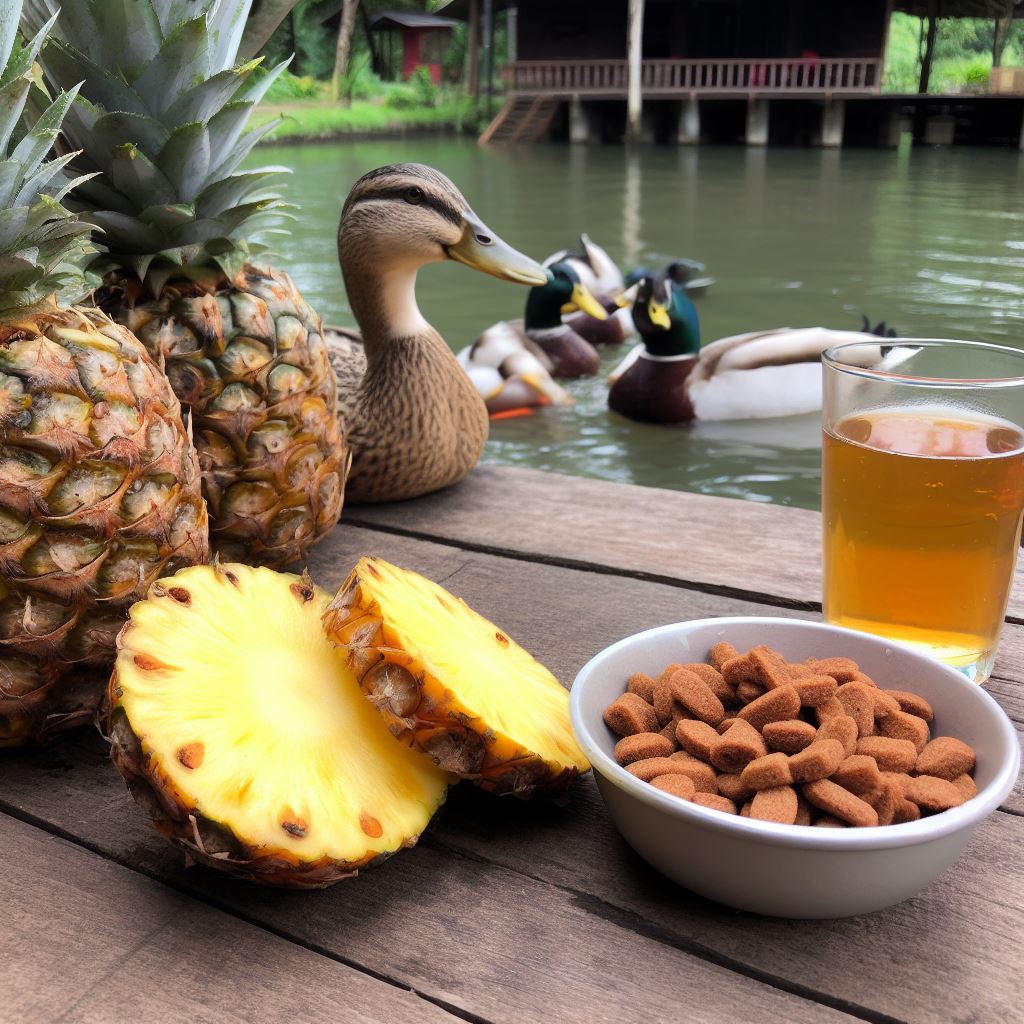Can Ducks Eat Oyster Shells? Benefits and Safety Guide

Table of content:
Ducks can eat oyster shells, but there are some important factors to consider before feeding them to ducks. Oyster shells can provide beneficial calcium and grit, but they also carry risks if not fed properly. This article provides helpful information on oyster shells for ducks – covering safety, nutrition, preparation, amount to feed, and ideal alternatives.
Key Takeaways:
- Oyster shells can provide calcium and grit, but excessive amounts can impact digestion.
- Grind shells into smaller pieces to reduce choking risk and aid digestion.
- Feed no more than 1-2 tablespoons per duck per day. Less for smaller ducks.
- Offer alternative sources like limestone grit, crushed eggshells, insoluble greens.
- Avoid raw, unwashed shells that may contain bacteria or contaminants.
Oyster shells can make a good supplemental source of calcium and grit for ducks when fed in moderation. The main question is – how much is safe and what steps should be taken first?
Are Oyster Shells Safe for Ducks?
Oyster shells are not inherently dangerous, but they do require some preparation before feeding to ducks. Here are some safety considerations:
- Choking Hazard – Whole shells can pose a choking risk. It’s best to grind shells into smaller, sand-like pieces.
- Sharp Edges – Fresh shells can have sharp edges that may cut a duck’s throat or digestive tract. Crushing eliminates this risk.
- Bacteria – Raw shells may contain ocean bacteria like salmonella. Always cook or bake shells first to sterilize.
- Heavy Metals – Shells harvested from polluted waters may contain lead or other toxins. Source shells from clean environments only.
- Overfeeding – Too many shells can overwhelm digestion, so moderate portions are key.
With proper preparation and amounts, the risks are minimal. Thoroughly crushing shells and avoiding contamination are vital steps for safety.
 Do Oyster Shells Offer Nutritional Benefits for Ducks?
Do Oyster Shells Offer Nutritional Benefits for Ducks?
Yes, when fed in moderation oyster shells provide two useful nutritional components:
Calcium
Crushed oyster shells are rich in calcium carbonate. Calcium supports bone health and egg production in ducks. It’s especially important for breeding and laying ducks.
Oyster shells contain 38-40% calcium by weight, providing an excellent natural source. This is superior to most commercial limestone grits.
Grit
Ducks naturally swallow small pebbles and gravel to help grind up fibrous foods in their gizzard. Oyster shell grit provides this beneficial grinding action.
Their thin, angular shape makes them effective at breaking down plant matter compared to smooth stones. This aids digestion.
However, excess grit can overload the gizzard and cause digestive upset. Moderation is important.
How to Prepare Oyster Shells for Ducks
Raw oyster shells straight from a restaurant or seafood source are not suitable for ducks. Proper preparation is required first:
- Rinse thoroughly and scrub off any debris, tissue or organic matter. Soak in water for 30 minutes.
- Sterilize with heat – either bake shells at 350°F for 10 minutes or boil for 5-10 minutes. This kills any ocean bacteria present.
- Allow to fully dry. Then use a hammer or grinder to crush shells into 1/8-1/4 inch sized pieces. Avoid powder.
- Store the crushed shell grit in an airtight container until ready to feed.
Follow these steps each time before feeding to ducks for safety. Avoid feeding shells that are moldy, dirty or haven’t been sterilized and dried fully.
How Much Oyster Shell Grit Should Ducks Have?
Moderation is key when feeding oyster shells to avoid digestive issues. Here are some feeding guidelines:
- For full-sized adult ducks, feed no more than 1-2 tablespoons per duck per day.
- For smaller ducks like call ducks, feed just 1 teaspoon daily or every other day.
- Limit treats like shells to once or twice a week for pet ducks. Free-ranging ducks need less due to their diverse diet.
- Provide grit separate from food to allow self-regulation of intake.
- Reduce or take a break from grit if any signs of constipation, crop impaction or other digestive issues.
Monitor duck droppings – they should not contain whole shell fragments which signal excess consumption.
Also remember that ducks have changing nutritional needs. Reduce shells for ducks not actively breeding or laying. Monitor to ensure each is consuming an appropriate amount.
Best Alternatives to Oyster Shells for Ducks
While oyster shell grit certainly has benefits, there are other alternatives to consider:
Crushed Eggshells
Cleaned and crushed eggshells from your own chickens or ducks provide an excellent source of calcium and grit. Eggshells are sterile and safe if prepared properly.
Insoluble Gritty Greens
Chopped kale ribs, carrot tops, beet greens and chard stems provide insoluble fiber and calcium. Fresh greens are easier on the digestive tract.
Commercial Limestone Grit
Look for coarse, granular limestone grit products specifically formulated for chickens and ducks. Available at most feed stores.
Coarse Sand or Gravel
Rinse thoroughly. Use sparingly, as excess can cause crop impactions. Best for free-ranging ducks to naturally supplement their diet.
Crushed Seashells
Like oyster shells, these naturally provide calcium and grit. Rinse, sterilize, dry and crush seashells before feeding.
A balanced combination of the above alternatives can give ducks the benefits of oyster shell grit without as many risks. Rotate different options to give variety.
Conclusion
While ducks can eat crushed oyster shells, it’s important to be cautious and selective in how they are fed. Follow the preparation, amount and feeding tips covered to minimize any risks.
Monitor your ducks closely and adjust as needed to maintain optimal health and nutrition. A varied, well-balanced diet with multiple sources of calcium and gizzard grit is ideal for healthy, productive ducks.
Welcome. I’m Adreena Shanum, the proud owner of this website, and I am incredibly passionate about animals, especially poultry. I founded adreenapets.com as a labor of love, stemming from my desire to share my knowledge and experiences with poultry enthusiasts worldwide.




